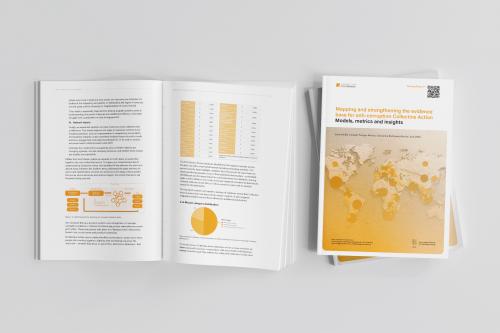Basel Institute’s Public Governance division to lead corruption research projects in East Africa and post-Soviet countries
The Basel Institute has been awarded two new research grants; one by the British Academy as part of its GBP 4 million global anti-corruption research scheme in partnership with the Department for International Development (DFID) in the context of DFID’s Anti-Corruption Evidence ('ACE') Research Programme; the second by DFID’s East Africa Research Fund (EARF).
The BA grant will support a 24-month research project titled Informal Governance and Corruption – Transcending the Principal Agent and Collective Action Paradigms. Under the leadership of the Basel Institute’s Head of Governance Research, Dr Claudia Baez Camargo, and in close collaboration with Professor Alena Ledeneva (from University College London) and Dr Scott Newton (from SOAS University of London) this research project proposes to adopt a bottom-up perspective to understand the role that informality plays in fuelling corruption and stifling anti-corruption policies. By suggesting this emphasis on informality, the project seeks to shift away from the more commonly held perspective of viewing endemic corruption as a collective action problem and prescribing the strengthening of formal mechanisms top-down.
Through the application of a comparative research design, the research will thus test the impact of informality on corruption and anti-corruption within a wider set of countries in East Africa (Kenya, Rwanda, Tanzania and Uganda) and the former Soviet Union (Georgia, Kazakhstan, Kyrgyzstan and Russia).
A second grant, by DFID’s EARF, provides funding for an 18-month research study on “Corruption, Social Norms and Values in East Africa.” The project will also be led by Dr Claudia Baez Camargo in close cooperation with a number of local researchers in the target countries in East Africa (Rwanda, Tanzania, Uganda). In order to gain a better understanding of how endemic corruption “works” from the perspective of the affected populations themselves, this research project focuses on petty corruption, and in doing so intends to:
- understand social norms and mental models associated with the propensity of officials to ask for, accept or reject bribes; and that of citizens to offer, concede, resist and report bribery in daily interactions;
- understand the factors (including social norms, habits, emotions, mental biases, sense of agency) which influence these; and
- identify further evidence gaps and consider implications for anti-corruption interventions in the three concerned countries.



